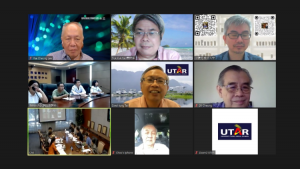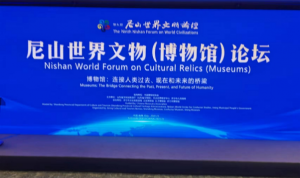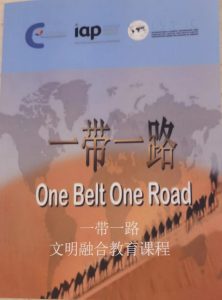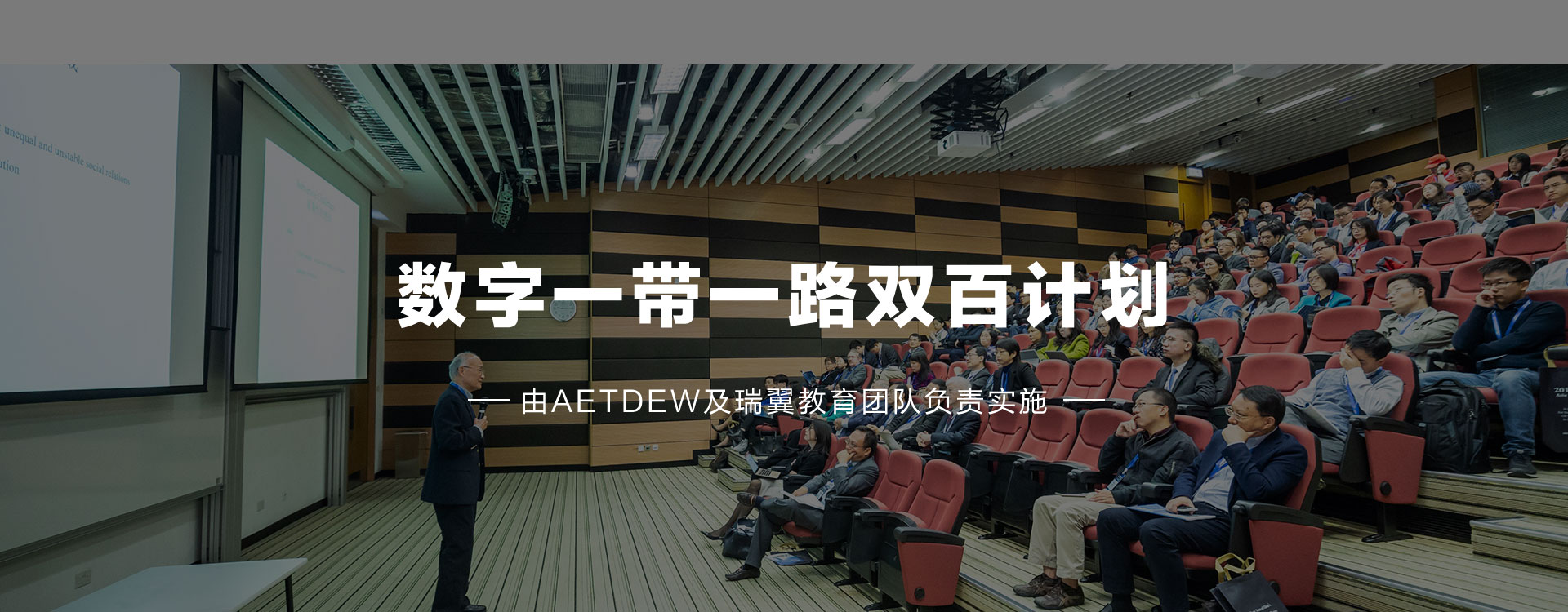



AETDEW with her extensive network of eminent engineers, scientists and technologists in South countries is the ideal partner for the Sugon Ruiyi Education Cooperation Center in turning the Chinese DCHUP into DHUCP under B&R. After intensive consultations during exchange of visits to Kuala Lumpur, Beijing and Shenzhen in early 2018, both parties are desirous of:
● Promoting the educational exchange and cooperation of higher education institutions between China and their counterparts in B&R countries,
● Utilizing the leading information technology of China to upgrade the science and technology education institutions in B&R countries,
● Cultivating engineering and innovative talents with advanced information and communication technologies, and
● Improving the infrastructure and maintenance of national information and communication network of B&R countries.
AETDEW and Data @China Hundred Universities Project (DCHUP) of the Ministry of Education of China, jointly initiated the Digital @ B&R Double Hundred Universities Cooperation Program (DHUCP) by signing a MOU in July 2018.

Education and Cultural Exchange
Explore a mechanism for communication and exchange between 100 member universities of DCHUP in China and 100 universities and professional training institutions in other B&R countries, within the framework of the Belt & Road Initiative. The qualified Chinese universities can establish partnerships with qualified universities and professional training institutions in other B&R countries, and combine the advantages of both parties to nurture ICT students and to conduct regular academic, educational and cultural exchanges, including but not limited to educational cooperation among universities and colleges, mutual recognition of academic credits and degrees, study abroad fellowships, advanced studies and study tours.
Deepen international exchanges and cooperation in the field of engineering education
● Explore the exchange and cooperation in international engineering education with universities in B&R countries.
● Spread knowledge and intellectual products and educational resources of quality universities and multinational enterprises in China to universities and colleges in developing countries,
● Promote the integration of Chinese universities and multinational enterprises in joint efforts to cultivate Chinese “international” engineers who are familiar with foreign cultures, laws and standards,
● Cultivate engineers from B&R countries who are familiar with Chinese culture and Chinese engineers.
● Focus on the engineering infrastructure needs of B&R by building a strategic alliance of the information technology disciplines of the DHUCP universities and colleges, and
● Build an international cooperation network for engineering education with AETDEW to enhance the ability of engineering education to support the B&R strategy of all B&R countries, including China.
Regional Training Hub of AETDEW
● Select qualified universities in DCHUP in China to establish AETDEW training hubs to provide human resources development and training services that are in demand in B&R countries, with focus on the combination of key big data and AI technologies and key national industry applications;
● Establish a global digital technology training network with training hubs in other B&R countries, especially communications, cloud computing, big data, together with other core professional fields in the modern information industry.
● Address the critical shortage of trained engineers and technicians in the operation and maintenance of the infrastructure assets that are being built under B&R by AETDEW training hubs in China and B&R countries to provide training in specific areas.
Support for UN Sustainable Development Goals (SDGs)
Rally support from the governments to promote the economic, cultural, and educational exchange activities of the B&R Initiative; and assist AETDEW in using science and technology to improve the living quality and economic development in developing countries, and through South-South Cooperation in helping developing countries achieve the UN SDGs by promoting progress in engineering and scientific and technological innovation in developing countries.
A Super Digital Platform for the Developing World
Building on the DCHUP “Super Platform for Big Data Application” in China, to develop DHUCP “Super Digital Platform for Sustainable Development” for the developing world.
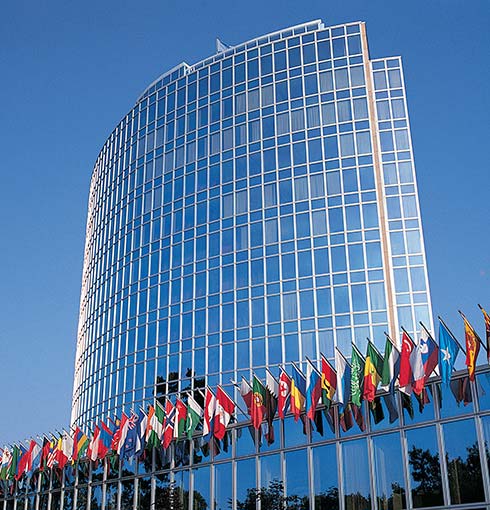

Recruitment of Universities and Colleges
The Project office in China is in close contact with technical universities and colleges in China that are very keen to join the Project.
The Project Office in China will invite universities and colleges from Russia and Mongolia to join the Project.
Since the signing of the MOU in July 2018, AETDEW has been very active to recruit universities and colleges from B&R countries to join the Project. Universities and colleges that have applied to join total more than twenty. They are from Kazakhstan, Indonesia, Jordan, Zimbabwe, Malaysia, South Africa, Pakistan, Vietnam, Ecuador, Nigeria, Iran, Kyrgyzstan, Tajikistan, Sudan, and Rwanda.
Applications are expected from universities and colleges from Philippines, Colombia, Chile, Brazil, Argentina, Trinidad and Tobago, Tunisia, Senegal, Ghana, Uganda, Tanzania, Zambia, Costa Rica, Turkey, UK, Oman.
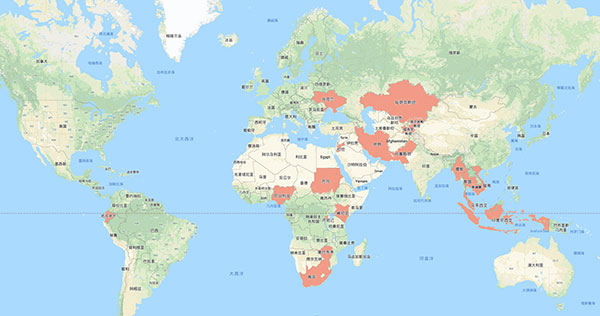
International Advisory Board (IAB)
At the first working meeting between Sugon Ruiyi Education and AETDEW on 16 September 2018 in Beijing, AETDEW President Dato Lee Yee Cheong proposed the setting up of the DHUCP International Advisory Board (IAB) to provide policy advice and monitor the progress of the Project.
Nominations of AETDEW Fellows have been made and invitations will be sent out by AETDEW President to the following to be members of the IAB.
1)AETDEW President: Lee Yee Cheong;
2)United Nations Secretary-General’s Special Envoy for South-South Cooperation/Chief Executive, United Nations Office for South-South Cooperation, Jorge Chediek ;
3)President of the Future University of Sudan, Mustafa El Tayeb;
4)President of the ECO Science Foundation, Manzoor H Soomro;
5)President of ASEAN Academy of Engineering and Technology/President of UTAR Malaysia, Chuah Hean Teik;
6)Director, UNESCO Regional Science Bureau for Asia and the Pacific,Shahbaz Khan;
7)President, Institution of Engineers Sri Lanka, Niranjanie Ratnayake;
8)Former Director of the Science and Technology Division of the New Partnership for Africa's Development (NEPAD); John Mugabe;
9)Chairman of the Council for the Regulation of Engineering in Nigeria, Kashim Ali;
10)Former President of the American University Chile, Jorge Yutronic Fernandez;
11)Immediate Past President (Brazil) World Federation of Engineering Organisations (WFEO), Jorge Spitalnik;
12)President WFEO (Australia), Marlene Kanga;
13)President-Elect WFEO (China), Gongke;
14)Treasurer WFEO (Singapore), Tan Seng Chuan;
15)Vice President WFEO (Zimbabwe), Martin Mahuwa;
16)Treasure AETDEW (Malaysia), Choo Kok Beng;
17)Secretary General Federation of Engineering Institutions in Asia and the Pacific (FEIAP) (Malaysia), Tan Yean Chin
18)Former Vice President WFEO (China) Zhong Xiyin;
19)President, Federation of Global Competitiveness Councils (USA), Deborah Wince-Smith;
20)Director General Islamic World Academy of Sciences, Moneef Al-Zou’bi
21)Deputy Director, SEAMEO QITEP (Indonesia) Indarjani,
22)Co-Founder, VICGO, Vietnam, Cong-Thang Huynh.
23)Director International, Royal Scientific Society, Abeer Arafat
24)Professor Tsinghua University, China, Xue Lan.
The Project Office in China will nominate and send out invitations to Chinese IAB members.

AETDEW President Dato Lee Yee Cheong has been promoting the Project in WFEO Forums and Meetings in March 2018 Paris and in London in October 2018 as well as in regional conferences in Islamabad Pakistan, April 2018 and Kigali, Rwanda, August 2018, Beijing, China in September 2018.and in Global Engineering Congress London 22-26 October 2018. The response has been very positive.
It is expected that the Project will receive the support of WFEO and her international members like FEIAP and the Federation of African Engineering Organisations (FAEO).
The Project already received the support of UNESCO Regional Science Bureau for Asia and the Pacific and the ECO Science Foundation.
Dato Lee Yee Cheong visited the Chief Executive of the United Nations Office for South-South Cooperation (UNOSSC) in New York on 21 September 2018. Consultation on the signing of MOU supporting the Project is in progress.
In China, similar consultations are ongoing with the China Association for International Education Exchange and Chinese Corporations in the digital technology sector.
